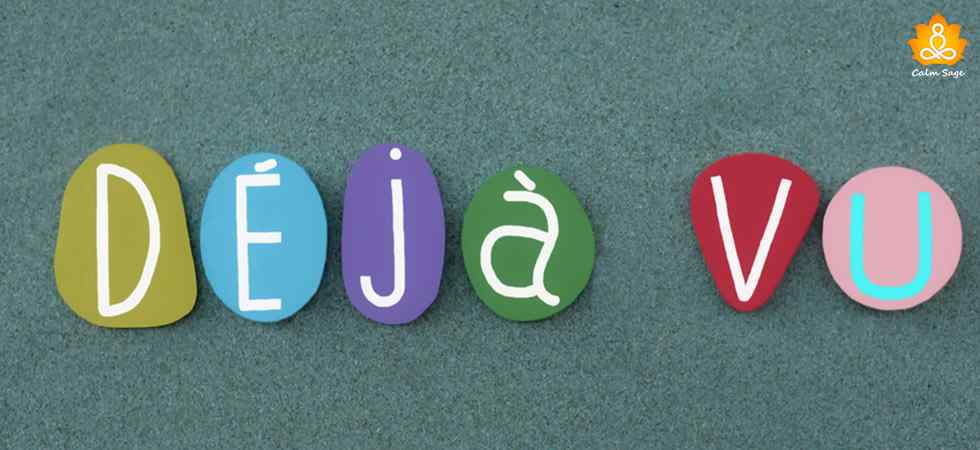Exploring The Psychology And Meaning Of Déjà Vu

“I might have seen this before” Such quick instincts are common especially when you travel a lot! Around 97% of people commonly experience déjà vu at least once in their life, meanwhile two-thirds of people experience déjà vu on a regular basis.
Some people feel that they are experiencing déjà vu and amnesia at the same time, it feels like that they’ve forgotten this before as well. It catches an off-guard feeling… in psychology, it is considered to be a “glitch” in the brain especially when two different streams collide. Déjà vu is a French word that means “already seen.” Psychologists around the world believe that déjà vu can be a sign to pay special attention to what’s taking place or what’s coming.
Déjà vu can be a memory, an overlapping of events, a precognition, a dream, past experiences, and more! In this blog, let us explore what is déjà vu from a psychological viewpoint and when to get help. So, let’s get started!
What is Déjà vu?

You might have seen people using “Déjà vu” as a generic term during conversations but it has a lot to do with psychology. Déjà vu means “already seen” which is a transitory sensation of already seeing or living a totally identical situation in the past.
This is more common for frequent travelers meanwhile, it can happen to anyone. For example, suppose you’re in an important conversation with someone and suddenly realize that you have done the exact same thing before but at the same time, you’re also aware that it cannot be possible.
According to me, déjà vu is a false sense of understanding. It is not like traveling to your office every day through the metro and meeting the same people at the same time. Déjà vu is feeling that you’ve lived this specific scenario in the past and being aware that it never happened before.
Causes of Déjà vu
Per psychology, when we experience déjà vu, our brain creates an illusion that happens when there’s a chance of miscommunication in the sides of the brain. People who are stressed, anxious, or tired are likely to report episodes of déjà vu as stress or fatigue can affect short- and long-term memory. Research shows that increased levels of dopamine also play an important role in temporal lobe epilepsy.
Is Déjà vu Normal?
Déjà vu is a common experience and it is more common in people between 15 to 25 years old and the probability of experiencing déjà vu progressively decreases as we age. Research shows that déjà vu happens more when:
- Holding liberal beliefs
- Traveling
- Studying a lot for a high level of education
- Remembering your dreams
Déjà vu is likely to be experienced more in people with:
- High income
- Frequent travelers
- Politically liberal people
- People who remember their dreams
However, the fact is that déjà vu is a rare phenomenon in individuals with healthy well-being but it can be a normal thing if it occurs a couple of times. If déjà vu becomes more frequent and followed by other symptoms, it must be addressed by a mental health professional.
Some people relate déjà vu with seizures, in such cases, it is considered to be a symptom of epilepsy (a seizure disorder which causes uncontrollable tremors). Déjà vu with epilepsy can also cause loss of awareness, tongue-biting, post-seizure confusion, and shaking.
When You Should go to Doctor for Déjà Vu?

When déjà vu is accompanied by other mental health issues, it can be a sign of underlying mental health concerns. Studies show that exhaustion and stress are likely to contribute to déjà vu but it can also be a sign of migraines, memory-related disorders, and more.
If your déjà vu is accompanied by symptoms you must connect with a health provider:
- Headache
- Confusion
- Weakness
- Loss of awareness
- Shaking
- Seizures
If you think you or your loved one might be experiencing déjà vu more often or frequently, you must connect with a healthcare provider. If the symptoms are accompanied by more occurrences, loss of consciousness, fumbling, or a racing heart, consider getting help.
Frequently Asked Questions
Q.1 What is Déjà vu and how does it affect a person?
According to psychology, Déjà vu is a consequence of two different streams colliding. As a result, people feel that they have something like this even before.
Q.2 Who first used the term Déjà vu?
Famous philosopher, St. Augustine described the concept of Déjà vu during 400 AD as false memories but Emile Boirac used the term first in 1890.
Q.3 How often do you get Déjà vu?
Déjà vu is a common phenomenon we all experience but when it becomes frequent or associated with other symptoms or mental health issues, it needs to be addressed by a mental health professional.
I hope this blog helps you understand the psychology behind déjà vu and its meaning. Comment down your views on the same.
For more such content, connect with us through all social media platforms.
Thanks for reading!




















